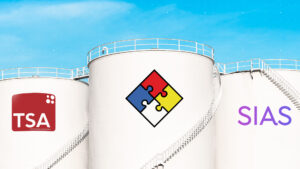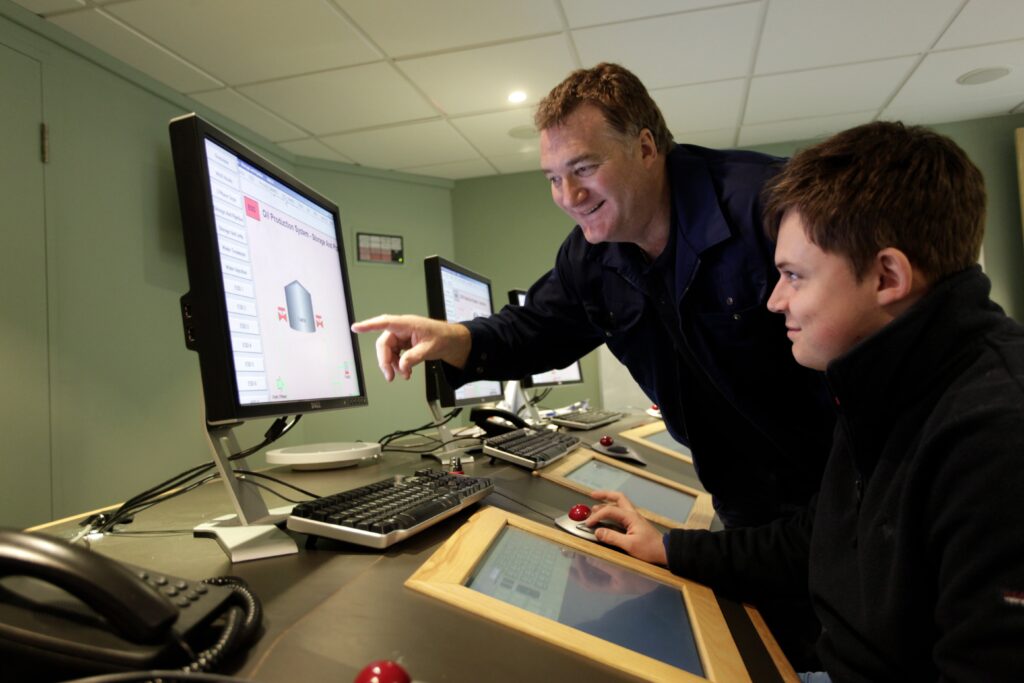

Latest Article

November 10th, 2025
Press Release: SIAS Level 2 Diploma in Bulk Storage Operations
Other posts by this author
November 10th, 2025
Press Release: SIAS Level 2 Diploma in Bulk Storage Operations
February 19th, 2024
Reynolds Training Makes an Exciting Return to StocExpo 2024
January 18th, 2024
Reynolds Training Partners with Smartflow on ISGOTT V6 App
Categories
Competency Health and Safety Articles Health and Safety News Health and Safety Training In-House News Industry News Online Health and safety Process Training Reynolds Training Services rts Training Course Trending Uncategorized
Written by Reynolds Training
September 26th, 2023
Health and Safety Training
There’s a wide range of Apprenticeship Roles involved in preparing an Apprentice for the workplace; certainly more than might immediately meet the eye.
‘It takes a village’ is a phrase that refers to the collective effort required in raising a child. We also think it’s also a pretty good assessment of the collaborative work involved in raising an Apprentice to the level where they are skilled and experienced enough to make a productive contribution to their employer’s workflow.
Apprenticeships are far from solitary endeavours. Behind every successful Apprentice lies a vast network of Apprenticeship Roles – individuals and organisations who have played a unique and significant role in the creation, delivery, and validation of these vital learning pathways.
If you’d like guidance on the cost of hiring an Apprentice, check out this informative blog, while the timeline of decisions that need to be made and actions that need to be completed between now and the start of the next course (in September 2024) is detailed in this blog.
The first organisation to take an active role is, of course, the employer, who understands the value of Apprentices and has made the decision to employ Apprentices in the first place. It all begins with the employer acknowledging they have the problem of a gap in their business that an Apprentice can solve.
The individuals within this organisation who will be involved include:
For Apprenticeship delivery the Employer’s core responsibilities are:
There is a lot more to offering training than simply turning up on the day with some lesson notes, everyone we employ as a trainer has decades of experience that they bring with them into the classroom and onto the site. Then, behind them, there’s a small army of professionals who ensure that everything is in place from the central government funding to the coffee in the hot drinks machine.
The Training Provider’s core responsibilities are:
Validation of an Apprentice’s progress against the knowledge, skills and behaviours required within the Apprenticeship standard is critical. At Reynolds Training, we value the partnership being developed with industry-leading End Point Assessment Organisation, SIAS.
The role of the End point Assessor is multifaceted. As with all other stakeholders, the focus is on the Apprentice and it is independent of any training provision.
The EPAO’s responsibilities include:
*End Point Assessment with the Apprentice involves three key assessment steps:
No acknowledgement of roles could be complete if we did not include the role of the central character: the Apprentice.
All of the other roles in the delivery chain are centred and coordinated around the needs of the Apprentice. However, it’s worth remembering that the ultimate success of the Apprentice does not lay solely with the people and bodies facilitating the training – it requires the Apprentice to take an active role in their own success, not least through:
If you’d like to know more about any of these roles, here at Reynolds Training, don’t hesitate to get in touch by filling in the form below, or giving us a ring on the number at the bottom of the page.

Peter Davidson, Executive Director, TSAAs a dynamic, forward-looking and growing industry, we are committed to developing the next generation of talent. An Apprenticeship in the terminals industry will give you the chance to gain a professional qualification as part of an exciting and unique career.
Accreditation from government bodies is crucial for all of our courses – which is why we are proud to confirm that our courses are accredited by all the necessary organisations. This serves as a seal of approval, signifying that our courses meet the rigorous standards set by the nation’s (and the world’s) most authoritative agencies.
Such accreditation not only assures the quality and relevance of the training but also breeds confidence among employers, Apprentices and the wider industry that the workers emerging from these programs possess the necessary skills, knowledge and competencies to excel in their new roles.
The bodies that we work with for our Apprenticeship include:
Earning the validation from internationally-recognised chartered organisations and educational awarding bodies carries an immense weight and importance. These organisations set the industry standards, safety protocols, and best practices. Validation from such authorities demonstrates that we, as the training provider, and the courses we offer, adhere to the highest industry benchmarks in safety, quality, and competence.
Bodies involved in the validation and regulation of our Apprenticeship include:
When all the power and expertise of those people and organisations come together, we know we can produce fully-trained, experienced Apprentices with valid, robust knowledge and experience, as well as the skills needed to keep learning and improving as we escalate through our future of fuel transition.
And you can see that the (relatively) small investment needed to train an Apprentice taps you into a pipeline of internationally-recognised accreditation and validation, as well as the deepest expertise and finest cutting-edge learning technology.
If you’d like to know more about the pioneering technology we’re developing, have a look at the web pages on our in-house hands-on training facility, the NCPM, or learn about the way we’re taking training into the next dimension with Virtual Reynolds. Then there’s our continuous competence platform, CALMcloud.
So, to recap:
If you haven’t already, feel free to read part one of this three-part series, where we reveal how surprisingly affordable training an Apprentice can be – especially when you can expect to get a minimum 95% discount on training costs!
Then, you can go on to read the next blog in this series and learn about the Apprenticeship Timeline – a realistic assessment of just how long it takes from the moment you decide you need an Apprentice to the time they arrive at Reynolds Training for their first day.
Ask us about arranging Apprenticeships for your business, or we could create any customised training course to your precise specifications. Just get in touch by filling-in the contact form below:
Written by Reynolds Training
September 26th, 2023
Health and Safety Training

Let’s get
learning together!
Lines open Monday to Friday, 9am to 5pm, GMT

Prefer to talk by email?

Send a message to
enquiries@reynoldstraining.com
or fill in the form and a member of our safety team is standing by to help.
- John Reynolds